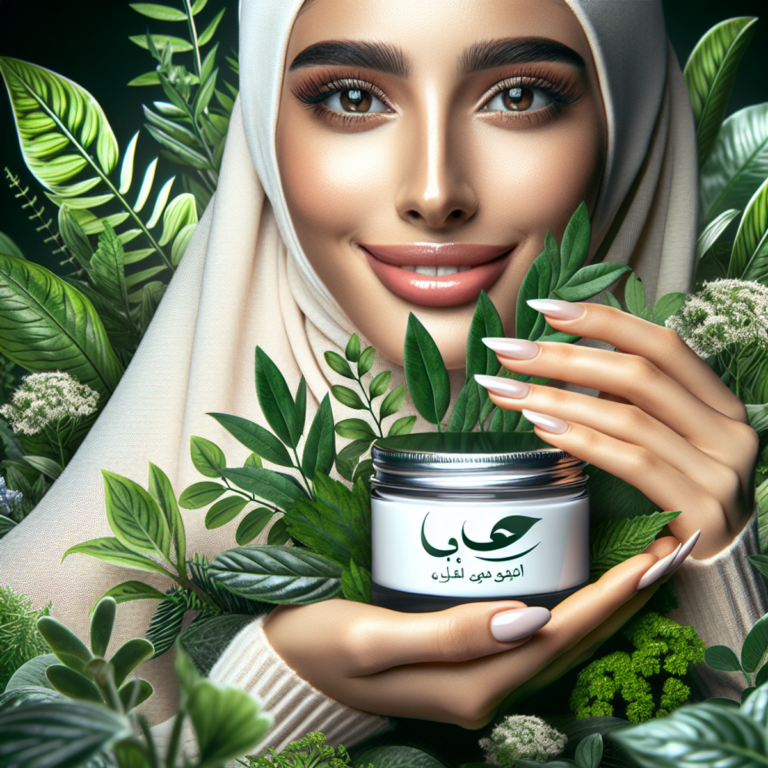Sustainability and social impact in the beauty industry

Introduction
Sustainability and social impact are becoming more and more important in the beauty industry. Beauty companies are realizing the significance of using sustainable practices and implementing initiatives that benefit both society and the environment. In this article, we will explore the different ways that top beauty companies are embracing sustainability and making a positive difference through their work.
The goal is to show how these companies are actively working towards a sustainable future and making a positive impact on communities and individuals through their actions.
1. Environmental Impact Assessment in the Beauty Industry
The beauty industry has a significant impact on the environment, and assessing the environmental footprint of cosmetics products is crucial for sustainable practices. Here are the key points to consider:
Importance of Assessing Environmental Impact
- Understanding the environmental impact of cosmetics products is essential for identifying areas of improvement and implementing sustainable practices.
- Assessing factors such as carbon emissions, water usage, and waste generation can help beauty companies make informed decisions to minimize their ecological footprint.
Case Study: L’Oréal’s Approach
- L’Oréal has been at the forefront of addressing environmental impact through product environmental and social labeling.
- By providing transparent information about the environmental and social aspects of their products, L’Oréal empowers consumers to make environmentally conscious choices.
Standardized Environmental Impact Assessment System
- There is a pressing need for a standardized environmental impact assessment system tailored specifically for the beauty industry.
- Efforts are underway to develop a comprehensive framework that can be universally adopted by beauty companies to evaluate and address their environmental impact.
Tackling Scope 3 Emissions in Manufacturing and Value Chains
- The beauty industry must also address Scope 3 emissions in manufacturing and value chains, which account for a significant portion of their carbon footprint. A recent report by the World Economic Forum highlights the “No-Excuse Opportunities to Tackle Scope 3 Emissions in Manufacturing and Value Chains“.
Benefits of Implementing an Industry-Wide Assessment Framework
- A standardized assessment system would streamline sustainability efforts across the beauty industry, enabling companies to benchmark their performance against common criteria.
- It would facilitate transparency and accountability, empowering consumers to support brands that prioritize sustainability.
By prioritizing environmental impact assessments, including addressing Scope 3 emissions, and embracing standardized frameworks, beauty companies can proactively contribute to a more sustainable future while meeting consumer demand for eco-conscious products.
2. Driving Sustainable Change: Estée Lauder Companies’ Sustainability Journey
The Estée Lauder Companies have been leading the way in driving sustainable change in the beauty industry. They have actively made sustainability a part of their brand identity and employee culture, understanding the significance of aligning their values with their sustainability efforts.
2.1. Integrating Sustainability into Brand Identity and Employee Culture
One of the main strategies used by the Estée Lauder Companies is integrating sustainability into their brand messaging and employee experience values. This ensures that sustainability becomes a fundamental aspect of who they are as a company and how they operate.
This integration can be seen in various areas of their business:
- Product development: They have incorporated sustainable practices into their product creation process, considering environmental factors right from the start. This includes using renewable energy sources, minimizing waste, and reducing emissions.
- Communication with consumers: They have actively shared information about their sustainability initiatives through marketing campaigns and product packaging. By doing so, they not only raise awareness among consumers but also encourage them to make more eco-friendly choices.
- Employee involvement: The company actively involves its employees in sustainability efforts through training programs and internal communication channels. This ensures that employees understand the importance of sustainability and are motivated to contribute to the company’s goals.
Examples of how they have achieved this integration
The Estée Lauder Companies have implemented several initiatives that demonstrate their commitment to integrating sustainability into their brand identity and employee culture:
- Sustainable sourcing: They have established responsible sourcing practices for key ingredients used in their products. This includes working with suppliers who follow ethical and sustainable practices, such as fair trade and organic farming.
- Employee engagement: The company actively engages its employees in sustainability efforts through training programs and internal communication channels. This ensures that employees understand the importance of sustainability and are motivated to contribute to the company’s goals.
- Collaboration with stakeholders: The Estée Lauder Companies collaborate with various stakeholders, including suppliers, NGOs, and industry organizations, to drive sustainable change collectively. By working together, they can leverage their combined expertise and resources to achieve greater impact.
Importance of garnering support from employees for successful implementation of sustainability initiatives
Engaging employees is crucial for the successful implementation of sustainability initiatives. When employees understand and embrace the company’s sustainability goals, they become advocates for change within the organization and beyond.
By aligning sustainability with brand messaging and employee experience values, the Estée Lauder Companies have created a culture where sustainability is seen as a shared responsibility. Employees are encouraged to contribute their ideas and insights, fostering a sense of ownership and empowerment.
This approach not only enhances the company’s ability to implement sustainable practices but also drives innovation. Employees from diverse backgrounds bring unique perspectives that can lead to creative solutions and new approaches to sustainability challenges.
In conclusion, the Estée Lauder Companies’ sustainability journey highlights the importance of integrating sustainability into brand identity and employee culture. By aligning their values with their sustainability initiatives, they have created an environment where employees are motivated to contribute to driving sustainable change. This approach not only strengthens their commitment to sustainability but also fosters innovation and collaboration within the beauty industry.
2.2. Setting Ambitious Goals and Ensuring Accountability
The Estée Lauder Companies have developed a comprehensive sustainability strategy that encompasses a robust framework for setting and tracking progress on sustainability goals and commitments. This approach demonstrates their commitment to ensuring accountability and driving impactful change within the beauty industry.
Robust Framework for Setting and Tracking Progress
The company has implemented a rigorous system for establishing clear sustainability goals and monitoring their progress over time. By integrating sustainability into their core business operations, they have been able to align their objectives with broader environmental and social impact targets. This integrated approach allows them to effectively measure the success of their initiatives and make adjustments as needed.
Specific Targets Established
In line with their commitment to sustainability, the Estée Lauder Companies have set specific targets across various areas of focus, including energy efficiency, waste reduction, and responsible sourcing of raw materials. By outlining these targets in a transparent manner, they are able to provide clear direction for their sustainability efforts while also allowing stakeholders to hold them accountable for making progress towards these goals.
Role of Transparency in Accountability
Transparency plays a crucial role in holding companies accountable for their actions. The Estée Lauder Companies recognize the importance of openly communicating their sustainability performance, including both successes and challenges. This level of transparency not only fosters trust among consumers and stakeholders but also encourages ongoing improvement as the company strives to meet its ambitious sustainability targets.
By prioritizing accountability and transparency, the Estée Lauder Companies are actively working towards creating a more sustainable and socially responsible beauty industry.
2.3. Fostering Inclusion, Diversity, and Equity in Sustainability Practices
The Estée Lauder Companies have taken a comprehensive approach to sustainability, recognizing that it goes beyond just environmental concerns. They understand the importance of integrating principles of inclusion, diversity, and equity within their sustainability efforts, not only to create a more socially responsible beauty industry but also to align with the broader goals of diversity, equity, and inclusion (DEI).
Aligning Principles with Brand Messaging and Employee Experience
One way in which the Estée Lauder Companies foster inclusion, diversity, and equity is by aligning these principles with their brand messaging and employee experience. They understand that sustainability is not just about products and practices; it is also about people. By incorporating these principles into their brand identity, they create a culture that values and respects diversity.
Driving Innovation Through Different Perspectives
By embracing inclusion and diversity, the Estée Lauder Companies are able to tap into a wide range of perspectives and experiences. This diversity of thought drives innovation and allows them to develop more sustainable solutions. Different backgrounds and experiences bring fresh ideas to the table, helping the company think outside the box and find new ways to minimize their environmental impact.
Benefits for the Beauty Industry
Furthermore, fostering inclusion, diversity, and equity in sustainability practices has numerous benefits for the beauty industry as a whole. When companies prioritize these principles, they create an environment where everyone feels valued and included. This leads to increased employee engagement and satisfaction, which in turn drives productivity and creativity.
In addition to internal benefits, promoting inclusion and diversity in sustainability practices also has external impacts. Consumers today are increasingly concerned about issues related to social justice and equality. By demonstrating a commitment to these principles, beauty companies can earn the trust and loyalty of consumers who align with these values.
Ongoing Commitment
The Estée Lauder Companies recognize that fostering inclusion, diversity, and equity is an ongoing journey. They continue to invest in initiatives that promote equality within their organization and industry. For example, they have established programs focused on gender equality, racial equity, LGBTQ+ rights, and more.
By actively working towards creating a more inclusive and diverse beauty industry, the Estée Lauder Companies set a positive example for other companies to follow. Their commitment to these principles helps drive meaningful change and pushes the boundaries of what is possible in sustainability practices.
3. Leveraging the Beauty Industry’s Influence for Positive Social Impact
The role of beauty companies in making social/community investments for the greater good is becoming increasingly important. These investments go beyond traditional corporate social responsibility initiatives and aim to create meaningful and sustainable change in communities.
Case study: Estée Lauder Companies’ Initiatives
The Estée Lauder Companies have been at the forefront of leveraging their influence in the beauty industry to drive positive social impact. One of their notable initiatives is the support for breast cancer awareness and research through their Breast Cancer Campaign. This initiative not only raises funds for critical research but also aims to increase awareness about the disease and provide support for those affected by it.
Additionally, the company has made significant commitments to promote education and empowerment of women through various programs and partnerships. By investing in education, mentorship, and skill-building opportunities, they are contributing to the social and economic development of communities around the world.
Moreover, the Estée Lauder Companies have demonstrated a dedication to environmental conservation and sustainability through their initiatives. By supporting reforestation projects and advocating for responsible sourcing of raw materials, they are actively working towards creating a more sustainable future for both the beauty industry and the planet.
These examples illustrate how beauty companies can leverage their resources, influence, and reach to make a meaningful difference in society. By prioritizing social/community investments, these companies are not only fulfilling their corporate responsibilities but also actively contributing to positive social change on a global scale.
4. Engaging Employees and Nurturing Sustainable Leadership in the Beauty Industry
The beauty industry is starting to understand how important it is to involve employees in sustainability efforts and offer them clear career paths that support the industry’s sustainability goals. Here are some key points to think about:
Why It Matters: Engaging Employees
Engaging employees in sustainability efforts is crucial for creating a lasting impact within organizations. When employees feel connected to the company’s sustainability mission, they are more likely to actively participate in initiatives and advocate for sustainable practices.
How to Foster a Sustainable Culture
Organizations can build a culture of sustainability by making it part of their core values, policies, and day-to-day operations. This can include:
- Setting up effective communication channels for sharing sustainability updates
- Providing training and educational resources on sustainability topics
- Recognizing and rewarding employees who embrace sustainable behaviors
Getting Employees Involved: The Estée Lauder Companies’ Approach
The Estée Lauder Companies serve as a great example of how to encourage employee involvement in sustainability initiatives. They:
- Encourage employees to share their ideas for sustainability improvements
- Offer volunteer programs that allow staff members to contribute to environmental causes
- Enable employees to practice sustainability in their own job roles
By doing these things, the company creates a sense of responsibility and teamwork when it comes to sustainability.
Creating Career Paths for Sustainability
To attract and keep talented individuals who are passionate about making a positive impact, it’s crucial to provide clear career options related to sustainability within the beauty industry. The Estée Lauder Companies have done this successfully by integrating roles like “Sustainable Packaging Manager” or “Environmental Sustainability Analyst” into their organization. This shows their dedication to sustainability and gives employees a chance to pursue meaningful careers that align with their values.
By actively involving employees and nurturing sustainable leadership in the beauty industry, companies can create a positive environment where people are motivated to work together for long-term sustainability and social good.
Conclusion
The beauty industry is making great strides towards being more sustainable and socially responsible. Companies like Estée Lauder Companies are leading the way by:
- Assessing the environmental impact of their products
- Incorporating sustainability into their brand identity and company culture
These companies have set ambitious goals and established strong frameworks to track their progress, ensuring that they are held accountable for their actions. Transparency is key in building trust with consumers.
In addition, it’s important for sustainability practices to be inclusive, diverse, and equitable. This not only brings different perspectives to the table but also drives innovation towards a more sustainable beauty industry.
Beauty companies are also using their influence to make positive contributions to society. For instance, The Estée Lauder Companies have launched various community-focused initiatives with the goal of creating a positive impact.
However, achieving long-term sustainability and positive social change requires everyone’s involvement. As consumers, we hold power in supporting and demanding more sustainable and socially responsible beauty products. By consciously choosing to support brands that prioritize sustainability and social impact, we can make a significant difference in the industry.
Let’s work together towards a future where beauty isn’t just about appearance but also about our impact on the planet and society.
Join us in our mission for a more sustainable beauty industry!










